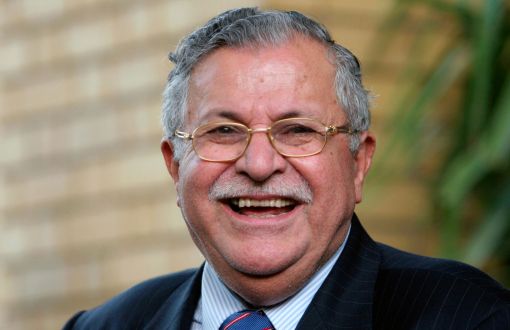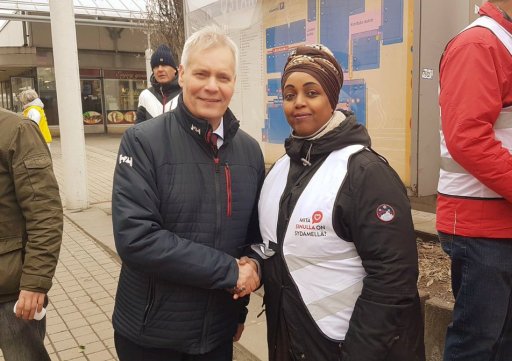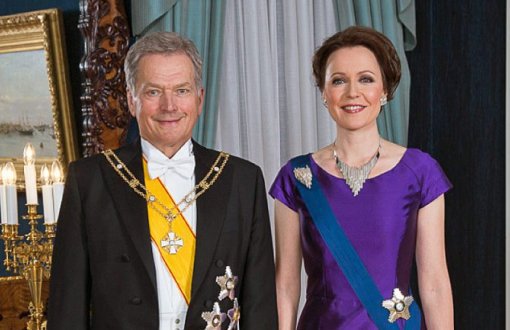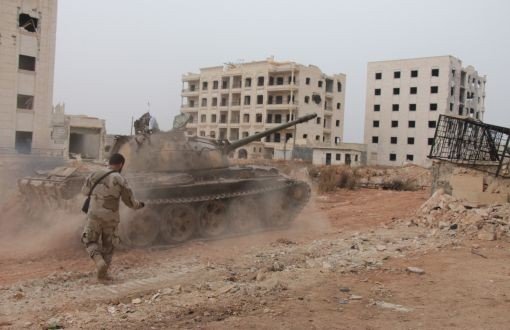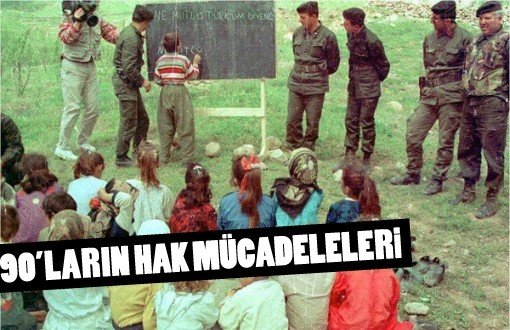Click to read the article in Turkish
Friends and foes alike have one thing in common to say about Jalal Talabani, who passed away yesterday: he was a leader. Some people liked him and some hated him, but it is quite clear that he made a difference in the Kurdish and Iraqi politics.
There are a lot of stories about Mam Jalal, who was always an optimist and who had a great sense humour and a smiling face. His nick name means Uncle Jalal and he was called that even as the president of Iraq from 2005 to 2012. Some people compare him with a fox because of his complicated political manoeuvres that kept him up and running in the forefront of the Kurdish politics since early 70’s.
He was born in a small village of Kalkan in Iraqi Kurdistan by the mountain of Kosrat 1933. As a young man he moved to Baghdad to study law and fell in love with that city. But Kurdistan was even dearer; he started his political struggle for the Kurdish self-determination by joining the legendary Democratic Party of Kurdistan, KDP, in the middle of 60’s. Year 1975 he went his own way and founded the Patriotic Union of Kurdistan, PUK, and remained officially its secretary general until his death.
Over the years Mam Jalal made political deals with all possible leaders starting from his enemy number one, late president Saddam Hussein, to both presidents Bush, Syrian president Hafez al-Assad and Iranian leader Ayatollah Khomeini just to mention a few.
“We Kurds have needed different support during different times. The main thing is to use the support for the best of your people”, I remember him telling me in the early 90’s after he once again had travelled to Baghdad and kissed Saddam.
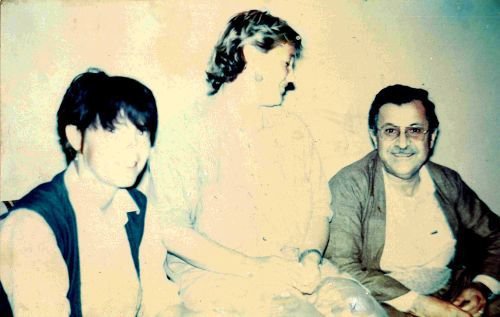
I met him for the first time on a trip to Kurdistan with my friend and colleague Nadire Mater. We had driven hours and hours through the devastated landscape of northern Iraq witnessing first-hand the horrors of Saddam Hussein’s rule over the Kurds. We ended up in the town of Shaqlawa where Mam Jalal had his provisory headquarters and met this smiling man who was willing to give an interview for two dusty ladies and who invited us to stay as long as we wanted.
For me Mam Jalal always remained the same despite his political career that took him to the highest post in Iraq. Over and over again he had time for a free-lance journalist from a distant and not-important Finland. I met him last time in his presidential palace in Baghdad 2012, just a few months before his stroke after which he never really recovered.
“You remember the poor conditions and the house we stayed in Mawat. There we slept on the floor and had no glasses in the windows – and look where I live now”, he laughed with something very boyish on his face. 1991 just after the Gulf War and the Kurdish uprising that Saddam crushed I had spent a few weeks in his camp near the Iranian border sharing the rough life he and his peshmerga fighters had in the mountains. But as the president of Iraq he stayed in the mansion that used to belong to Barzan al-Tikriti, Saddam Hussein’s half-brother and the former chief of the secret police. His presidential offices next door had once belonged to Saddam’s wife Sajida. And there was he now, a Kurdish Peshmerga who loved good food and cigars and who had been fighting his whole life for the Kurdish rights.
The role of the president after Saddam was planned to be more ceremonial than powerful. But Mam Jalal created his own style and became a balancing figure between the Shias and the Sunnis. He was a person that different parties could have at least some trust on since he was a Kurd and not involved in the power struggle of the other entities. He was also the Iraqi politician that had most contacts and networks abroad, a lot thanks to his charisma and exceptional personality – and his capability of making friends.
As the Kurdish leader Mam Jalal saw how Kurdistan made its’ way to a modern and economically blooming entity. On the way there was a bitter civil-war between the KDP and PUK, but like before, the two leaders made truce once again and went on.
I am quite sure there is a lot of missing and sorrow in Kurdistan after his passing away. For decades he was talking optimistically about the future, making jokes and manoeuvring so that despite all the difficulties, both domestic and international, Kurdistan was rather safe and prosperous in the very unsafe environment.
I do not know how the referendum issue would have gone, if he had still been in the political tables, where the decision to hold one, was made. Every time I asked him over the years about the independency he always had the same answer: “It is a dream and a long-term goal.” (LR/TK)





